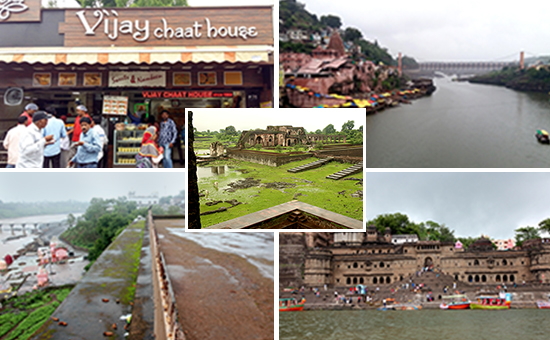- Should the Indian Taxpayer be funding Tax Exemption
on Agricultural Income for NRIs? This article gives current law, under FEMA and Income-tax, w.r.t to NRI’s owning agricultural land Plus Proposes a regulatory framework.
Vijay Kalra,
vice-chairman, Federation of Arhtiya Association of Punjab is quoted in a March 2021 Tribune report on payment for wheat going directly into farmer’s bank accounts, “No one in Punjab will upload details of land ownership. More than 40% of land, including that owned by NRIs, has been leased out. This means, the landowner not tilling the land, but declaring its ownership will get the MSP, not the cultivator.”
His quote of land owned by Non-Resident Indians (NRIs) being leased out triggered questions. Can NRIs own agricultural land? In case land is leased, are lease rentals received taxed under the Income-Tax Act 1961? Does the payment for sale of wheat/rice at Minimum Support Price (MSP) go to the NRI Bank or the Lessee’s bank account? If it is goes to the NRI account, is it going to their Savings or NRO (Non-Resident Ordinary Rupee) account. Note that NRO is an account that allows NRIs to deposit their
earnings from India in Indian Denomination. Do the state governments have data
on the quantum of land held by NRIs?
Part of the problems
with discussions on agriculture issues is lack of credible information. This
article seeks to overcome that w.r.t NRIs.
So what is the Law?
Under Foreign Exchange Management Act, 1999 (FEMA) and the Foreign Exchange
Management (Acquisition and Transfer of Immovable Property in India)
Regulations, NRIs are not permitted to purchase agricultural land or plantation
property or farmhouse in India. A NRI can inherit agricultural land though.
Next, who is an NRI under FEMA?
NRI is defined as a person resident outside India who is either
a citizen of India or is a Person of Indian Origin (PIO). A PIO means a citizen of any country other than
Bangladesh or Pakistan who had (a) at any time held Indian passport or (b) he
or either of his parents or any of his grandparents was a citizen of India by
virtue of the Constitution of India or the Citizenship Act, 1955 or (c) the
person is a spouse of an Indian citizen or a person referred to in (a) or (b).
Simply put, a person is an NRI under
FEMA as long as he/she is a citizen of India or a PIO. Even if a person
acquires citizenship of another country then he/she is a NRI if covered by definition
of PIO. RBI 2020
circular
 Marwar is a great winter destination.
Marwar is a great winter destination.
So can NRIs repatriate money earned in India, in this case lease rent or agri sale proceeds?
Yes they can repatriate upto
$ 1 million each year out of balances in NRO account provided tax is paid on
such income. Para 5.1 of this RBI Circular.
What happens if an NRI does not have a
NRO account?
As per RBI Master
Circular No.8/2013-14, “Authorised Dealer banks may also allow
repatriation of current income like rent, interest, etc. of NRIs who do not maintain an NRO
account in India based on an appropriate certification by a Chartered Acountant, certifying that the amount proposed to be remitted is eligible for remittance and that applicable taxes have been paid/provided for.”
Let us also look at the
Income-Tax law.
Under section 2 (1A) of the Income-Tax Act, “Rent or revenue derived from land i.e. used for agricultural purpose.” Thus, the lease rent received by NRI is exempt.
Currently, income from
agriculture can be taxed only by the state government and is currently exempt.
In author’s view the jurisdiction of the state governments is limited to the state and its residents and cannot cover taxation of NRIs who live outside India.
Are lease agreements
between an NRI and resident Indian governed by the Punjab Contract Farming Act
2013? Not clear because Congress leader Sunil Jakhar said in 2021 that the Act is
defunct since the Rules thereunder were not framed.
Is there any other law
by which lease agreements referred to by Vijay Kalra are governed?
It is
possible that the lease is actually a Batai
system where the lessor gets part of the produce as lease rent from
lessee/cultivator.
Next, it is possible that a NRI sells farm produce to the Food Corporation of India at MSP and proceeds are deposited in NRI’s savings account instead of NRO account?
Related questions:-Is
the MSP facility only for farmers who are Indian citizens? If sale proceeds are
deposited in the NRI savings account, can one track how the money is used?
It is perhaps for reasons mentioned above that the Centre’s directive to state government to upload
land records on the portal invited protests. The move allows the
government to match name of land owner with seller of produce.
Laws were written
decades ago. It would be useful if the Centre revisits all rules concerning
ownership of agricultural land by NRIs.
 Malwa has so much to offer.
Malwa has so much to offer.
Here is a proposed
regulatory framework on key issues.
NRI’s cannot purchase agricultural land, plantation or farm land in India. NRI’s can inherit and hold agricultural land. However, details of such inheritance must be uploaded on the Reserve Bank of India and the state government websites.
Details of lease
agreements, including Batai, between
NRI and resident Indians have to mandatorily be registered online, with state
governments, by the lessor.
An individual who is
not citizen of India and whose agricultural land yields any agricultural produce
cannot sell it at MSP to the state government or any Central government agency directly
or indirectly and receive sale proceeds.
Any income of a NRI who
is not citizen of India, from inherited agricultural land given on lease, has
to be deposited in a NRO account and income-tax paid thereon.
If an NRI sells inherited
agricultural land, he/she would have to pay capital gains tax as applicable. However,
sale or gift can be only to a person
resident in and citizen of India.
It is the
responsibility of the individual to inform the Bank, within a pre-determined
period, of a change in status from resident Indian to NRI.
On inherited
agricultural land, if an NRI hires labour etc to grow agricultural products then
the sale proceeds must be deposited in a NRO account only. Net income (that is
sale proceeds less costs) shall be taxable in India in the NRI hands.
Simply put,
agricultural income exemption and purchase at MSP is available only to resident
Indians who are citizens of India. After all, should the Indian Taxpayer be funding Tax Exemption on Agricultural
Income for NRIs?
The Centre cannot tax
agricultural income for resident Indians who are citizens but surely can tax income
of NRIs. Moreover, when distinctions on agriculture and taxability of its
income were made in 1950/1961 it was assumed that states would be spending all
monies on agriculture. Today Centre spends on fertiliser and farm insurance subsidy, PM-Kisan, MSP and
buffer food stocks etc.
If the Centre gets
inputs from states on informal ways of lease across India and frames policy
accordingly, it might help stone-wall protests and judicial intervention.
Author is a Chartered
Accountant.
Also read and References
1. India
needs a masterclass in responsibility and accountability of each arm of
government
2. ICICI
Bank-Can NRI inherit Agricultural Land
3. NRI
can inherit agricultural land from a resident in India
4. Laws
on Inheritance of Property for NRIs in India
5. NRI
guide to deal with Inherited Property